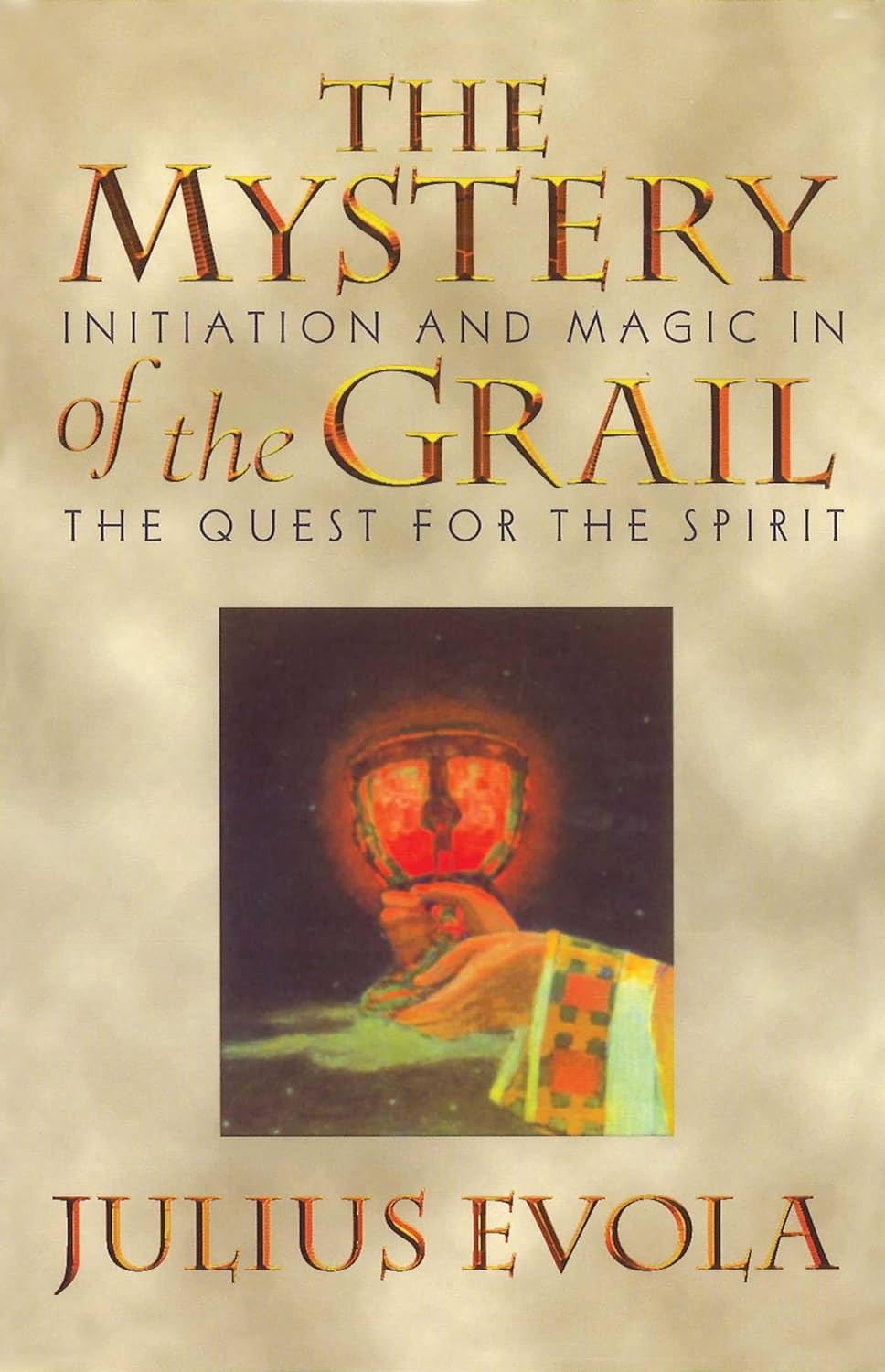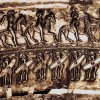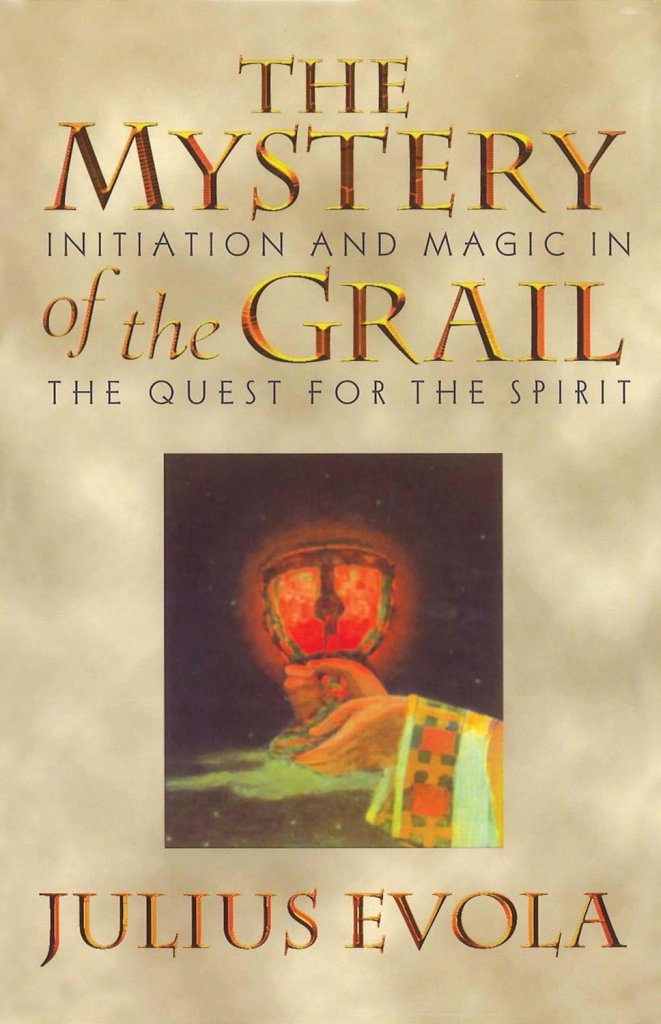Julius Evola’s views on the Holy Grail myth as a Hyperborean myth can be understood within the context of his broader intellectual project, which sought to recover the spiritual wisdom and cultural heritage of the ancient world. Evola believed that the modern world had become disconnected from its traditional roots and was in need of a renewed connection to the transcendent principles that had once guided human civilization.
For Evola, the myth of the Holy Grail represented a powerful symbol of this lost connection to the spiritual dimension of reality. In his view, the Grail was not simply a Christian relic or a literary device, but rather a potent symbol of a deeper truth about the nature of reality and the human soul. By exploring the origins of the Grail myth and its connection to the Hyperborean tradition, Evola sought to reveal the enduring significance of this ancient symbol and to reconnect modern readers with the spiritual wisdom that had been lost in the decline of Western civilization.
Evola’s views on the Holy Grail myth as a Hyperborean myth
Evola’s understanding of the Holy Grail myth as a Hyperborean myth was rooted in his belief that the ancient world had once possessed a deep spiritual connection to the transcendent realm. According to Evola, the Hyperborean tradition was a vital part of this ancient wisdom, and its influence could be traced back to the distant past of the human race.
The Hyperborean tradition was based on the idea that there had once existed a race of beings who were gifted with extraordinary spiritual powers and who had lived in a remote, paradisiacal land located at the northernmost reaches of the Earth. These beings were said to have possessed a deep connection to the spiritual realm and to have been able to access the divine wisdom that lay at the heart of the universe.
Evola believed that the Holy Grail myth was a reflection of this ancient Hyperborean tradition. In his view, the Grail was not simply a Christian relic or a literary device, but rather a potent symbol of the spiritual wisdom that had once been possessed by the Hyperborean race. By exploring the origins of the Grail myth and its connection to the Hyperborean tradition, Evola sought to reveal the enduring significance of this ancient symbol and to reconnect modern readers with the spiritual wisdom that had been lost in the decline of Western civilization.
The Grail as a potent symbol of the spiritual wisdom that had once been possessed by the Hyperborean race
Evola’s interpretation of the Holy Grail myth as a Hyperborean myth was based on a number of key elements of the story. First and foremost, Evola believed that the Grail itself was a symbol of the divine wisdom that had once been possessed by the Hyperborean race. In his view, the Grail represented the ultimate goal of the spiritual quest, which was to reconnect with the transcendent principles that had once guided human civilization.
Evola also believed that the Grail knights who sought the Grail were representatives of the ancient Hyperborean tradition. In his view, these knights were not simply seeking a Christian relic, but rather were engaged in a spiritual quest that was rooted in the ancient wisdom of the Hyperborean race. By exploring the origins of the Grail myth and its connection to the Hyperborean tradition, Evola sought to reveal the enduring significance of this ancient symbol and to reconnect modern readers with the spiritual wisdom that had been lost in the decline of Western civilization.
The Hyperborean Tradition and Its Significance
Evola’s interpretation of the Holy Grail myth as a Hyperborean myth was also based on his belief that the ancient Hyperborean tradition was closely linked to the spiritual wisdom of the East. In his view, the Hyperborean race had once been in contact with the ancient civilizations of India and China, and their spiritual wisdom had been passed down through the ages.
Evola believed that the Holy Grail myth was a reflection of this ancient spiritual wisdom, and that the Grail knights who sought the Grail were engaged in a spiritual quest that was rooted in the ancient wisdom of the East. By exploring the origins of the Grail myth and its connection to the Hyperborean tradition, Evola sought to reveal the enduring significance of this ancient symbol and to reconnect modern readers with the spiritual wisdom that had been lost in the decline of Western civilization.
Evola’s interpretation of the Holy Grail myth as a Hyperborean myth was also based on his belief that the ancient Hyperborean tradition was closely linked to the spiritual wisdom of the East. In his view, the Hyperborean race had once been in contact with the ancient civilizations of India and China, and their spiritual wisdom had been passed down through the ages.
Evola believed that the Holy Grail myth was a reflection of this ancient spiritual wisdom, and that the Grail knights who sought the Grail were engaged in a spiritual quest that was rooted in the ancient wisdom of the East. By exploring the origins of the Grail myth and its connection to the Hyperborean tradition, Evola sought to reveal the enduring significance of this ancient symbol and to reconnect modern readers with the spiritual wisdom that had been lost in the decline of Western civilization.
The Grail as a symbol of the divine wisdom
In conclusion, Julius Evola’s interpretation of the Holy Grail myth as a Hyperborean myth was rooted in his belief that the ancient world had once possessed a deep spiritual connection to the transcendent realm. Evola believed that the Holy Grail was a symbol of the divine wisdom that had once been possessed by the Hyperborean race, and that the Grail knights who sought the Grail were engaged in a spiritual quest that was rooted in the ancient wisdom of the East.
Evola’s interpretation of the Holy Grail myth as a Hyperborean myth was based on a number of key elements of the story, including the Grail itself, the spiritual quest of the Grail knights, and the ancient wisdom of the East. By exploring the origins of the Grail myth and its connection to the Hyperborean tradition, Evola sought to reveal the enduring significance of this ancient symbol and to reconnect modern readers with the spiritual wisdom that had been lost in the decline of Western civilization.
Evola believed that the Holy Grail myth was a reflection of the ancient Hyperborean tradition, and that the Grail knights who sought the Grail were engaged in a spiritual quest that was rooted in the ancient wisdom of the East. By exploring the origins of the Grail myth and its connection to the Hyperborean tradition, Evola sought to reveal the enduring significance of this ancient symbol and to reconnect modern readers with the spiritual wisdom that had been lost in the decline of Western civilization.
“A stunning exploration of the ancient world’s spiritual wisdom, ‘The Mystery of the Grail’ is a must-read for anyone seeking to reconnect with the timeless principles that once guided human civilization. Julius Evola’s unwavering commitment to traditionalism and the rejection of modernity shines through in this remarkable work, offering readers a glimpse into the transcendent power of the Hyperborean Tradition and the Holy Grail myth.
In this insightful and thought-provoking book, Evola weaves together a compelling narrative that explores the origins of the Grail myth and its connection to the spiritual dimension of reality. With his characteristic depth and clarity, Evola provides a roadmap for those who seek to restore the balance and harmony that has been lost in the decline of Western civilization.
But ‘The Mystery of the Grail’ is more than just a philosophical treatise; it is a call to action for those who seek to rediscover the ancient wisdom of the East. Evola’s thought-provoking ideas challenge readers to reject the corrupting influence of modernity and embrace the timeless principles that once guided human civilization.
Don’t miss out on this opportunity to delve into the ancient wisdom of the Hyperborean Tradition and the Holy Grail myth. Order your copy of ‘The Mystery of the Grail’ today and experience the transformative power of Julius Evola’s thought for yourself. Available now on Amazon!”





